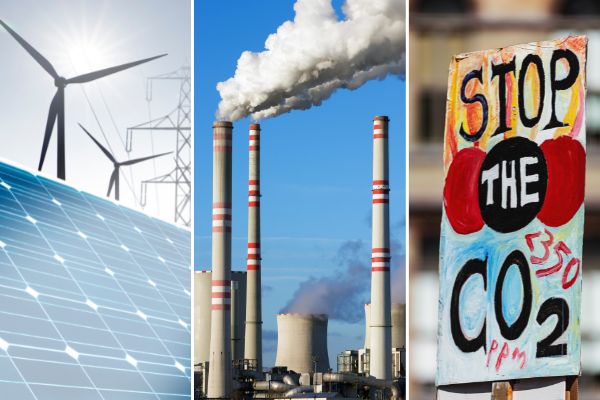What exactly is a crisis? It's a word we seem to hear ever more frequently but I wonder whether that dilutes the urgency of the term. Whether on matters of public health, the economy, world peace, or the climate, there is no doubt that the outlook is dire and calls for immediate action.
Yet as I contemplate the term, it seems that crisis also implies a degree of exclusivity. When used correctly, it applies to situations so imperative that other concerns are suspended in the effort of attending to the crisis at hand. Consider the climate – scientific consensus left no room for doubting the severity of the problems we face. Usually used in a hyperbolic sense, "existential crisis" is no exaggeration at all in the context of the peril faced by the planet's ecosystems.
But although EU policymakers were starting to get behind climate-aware measures (though inherently falling short of the total economic restructuring that the challenge demands), the political will has dissipated as Europe struggles with energy uncertainty and soaring inflation.
After years of railing against nuclear energy – capable of generating emission-free and constant electricity – the hypocrisy of turning back to the dirtiest energy source we have by reigniting dormant coal power stations is utterly catastrophic. Coal emits twice as much CO2 as natural gas and comes with a host of other environmental penalties.
For all the benefits of renewables, it will take years of investment, construction, and converting heating systems before they can be a viable alternative. And as crisis denotes, we can't wait years.
Which leads me to ask whether "crisis" indicates a human failure to recognise and confront a problem before it becomes critical. If this is the case, there seems no end of crises on the horizon.
Can you spot them? Let @Orlando_tbt know.
Belgium in Brief is a free daily roundup of the top stories to get you through your lunch break conversations. To receive it straight to your inbox every day, sign up below:
1. Europe reluctantly looks to coal to get through the winter
Just last year, coal was public enemy number one amongst European policymakers and energy experts. Generally viewed as one of the dirtiest fuel sources, when burned, coal produces elevated levels of particulate matter, as well as large amounts of carbon dioxide (CO2). Read more.
2. Ommegang parade returns to Brussels Friday 1 July
The Ommegang show is a UNESCO world heritage event, which takes place in the heart of Brussels. Now, after a two-year hiatus due to the pandemic, the annual spectacle is back on 29 June and 1 July at the Grand Place. Read more.
3. UK plans to cut off Belgium, EU from gas in crisis plan
The British government is set to cut Belgium and the rest of the European Union off from its gas supply in the event that the European energy crisis worsens and it is faced with shortages, according to the Financial Times. Read more.
4. Flagey’s makeover: Cars will make way for bikes and pedestrians
The Ixelles City Council has unveiled the details of a new circulation plan around Place Flagey and the Ixelles Ponds, which will allow more space for vulnerable road users while driving around the square will no longer be possible. Read more.
5. Belgium to receive €120 million from EU for infrastructure projects
Belgium will be receiving up to €120 million in European funding for six transport infrastructure projects in the country, of which more than €100 million has been earmarked for investment in Belgium’s railways and waterways. Read more.
6. ‘Moralwashing’: Major companies fail to leave Russian market
Of the 114 largest foreign corporations active in the Russian market before Russia’s invasion of Ukraine, only 6% have fully withdrawn from the Russian market. The vast majority claim to have done so while quietly retaining their investments in the market, a new report by the Moral Rating Agency has revealed. Read more.
7. Hidden Belgium: Vielsalm hiking trails
Deep in the Ardennes, the town of Vielsalm has marked out several hiking trails that take you through forests and old villages. Read more.


